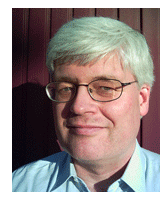Introduction
In many soft-matter systems the behaviour is strongly influenced or even dominated by the presence of electrostatic interactions. Typical examples are charge-stabilized colloids, polyelectrolytes (charged polymer molecules like most biopolymers), and microfluidic devices. The statistical thermodynamics is governed by a delicate interplay between energy and entropy, where the effective interaction varies both in terms of strength (due to charge density) and range (due to Debye screening). For studying dynamics, it is very important to consider the charge clouds as additional non-trivial degrees of freedom.
Professor Burkhard Duenweg, from the Max Planck Institute for Polymer Research in Mainz Germany, who is an internationally renowned expert in this area, will deliver a 4 week long intensive lecture course aimed at providing participants with a thorough background in electrostatics in soft matter. The lecture series will systematically introduce the most important theoretical concepts in this field, and discuss some simple and well-understood examples, while the full complexity of these systems is currently a matter of active research. The main target audience for the course is advanced students at the graduate level, and interested postdoctoral students and researchers. The course is organised by the Faculty of Engineering at Monash University.
Professor Burkhard Duenweg

Burkhard Duenweg obtained his Ph.D. degree in the group of Prof. K. Binder at the University of Mainz in 1991. He was then an Alexander von Humboldt Fellow, collaborating with Prof. D. P. Landau, at the Center for Simulation Physics at the University of Georgia, Athens, USA. He returned to Prof. Binder's group in Mainz in 1993. In 1996 he joined the Max-Planck Institute (MPI) for Polymer Research, where he is currently a group leader in the Theory Group of Prof K. Kremer. In January 2008, he was appointed "Extraordinary Professor" in Theoretical Physics at the University of Mainz.
Burkhard Duenweg's scientific background is in statistical physics, phase transitions, random processes, transport theory, hydrodynamics, polymer physics, and computer simulation methodology. He has made seminal contributions to the development of mesoscopic simulation algorithms-most notably, the invention of a simple and efficient algorithm to simulate soft-matter systems in solution, such that hydrodynamic interactions are faithfully taken into account. Further details on his research interests can be found at http://www.mpip-mainz.mpg.de/~duenweg/